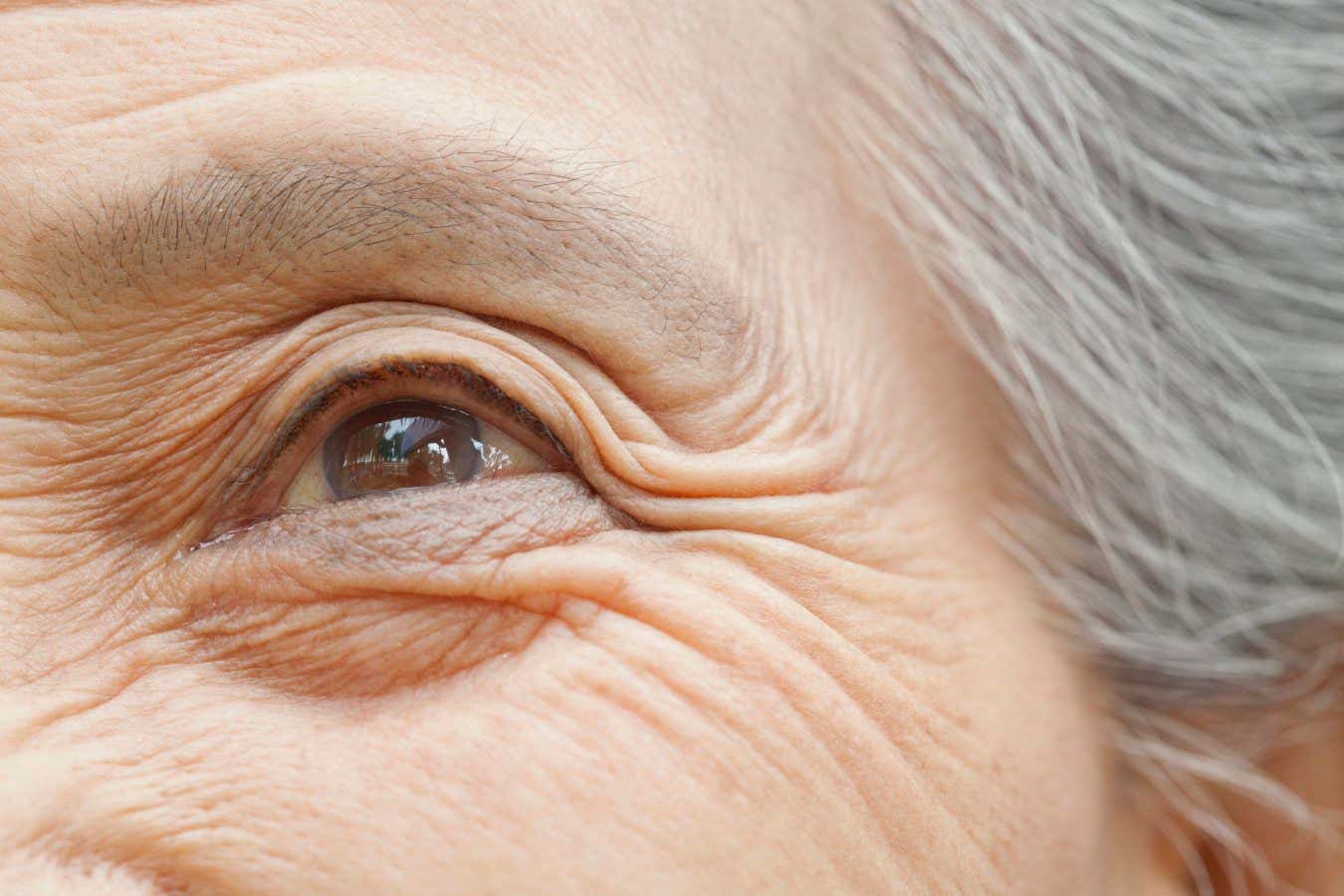When applied to skin on the forearms, two of these fragments increased levels of key structures that are known to make skin more elastic and youthful
By Carissa Wong
18 March 2023
Increasing inflammation levels and prolonged sun exposure cause skin to lose elasticity and develop wrinkles with age
FangXiaNuo/Getty Images
Skincare that includes two types of newly discovered protein fragments could one day repair age-induced damage.
The proteins that form an elastic network in our skin become increasingly damaged with age due to rising inflammation levels in our body and exposure to ultraviolet radiation from the sun. Over time, the damage causes the skin to lose its elasticity and become wrinkled.
As the proteins degrade, they release small protein fragments called peptides that can kick-start some degree of skin repair. However, these are usually released at insufficient levels to even somewhat reverse the appearance of skin ageing, says Michael Sherratt at the University of Manchester, UK.
Advertisement
Previously, some researchers have made cosmetic products containing high levels of such peptides, but few of these peptides have been shown to repair skin damage in people.
In research presented at the American Academy of Dermatology conference in Louisiana on 18 March, Sherratt and his colleagues used an artificial intelligence to predict what peptides are produced when proteins are broken down in our skin. From this, they identified two peptides that they think occur naturally in our skin as a result of damage.
The researchers then applied these peptides to an area of skin on the forearms of eight Caucasian people, aged between 71 and 84. The treated areas were covered with a polymer patch that is known to improve the penetration of peptides into skin.
